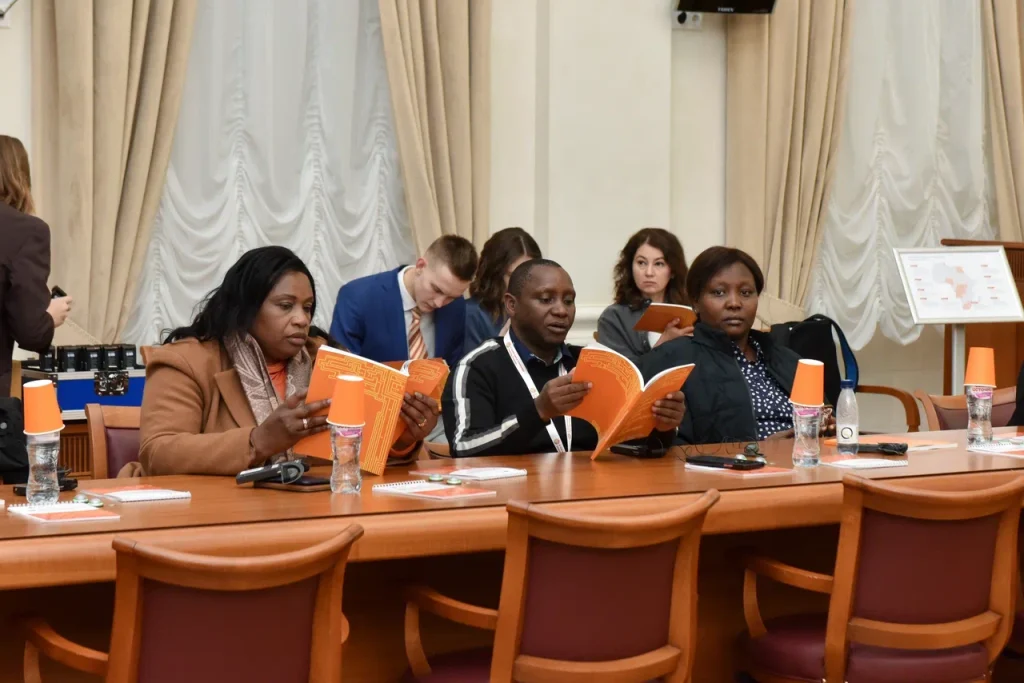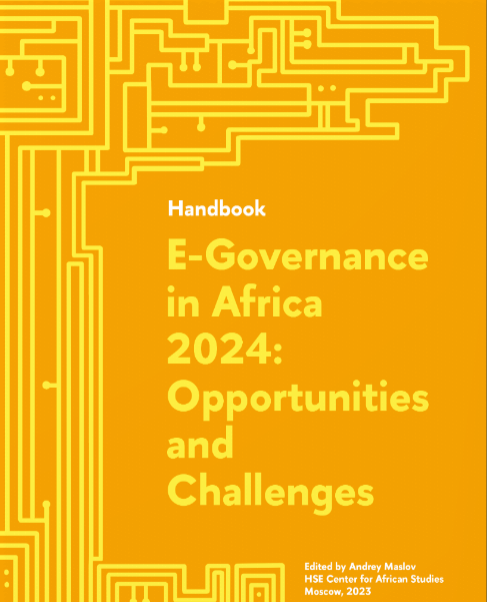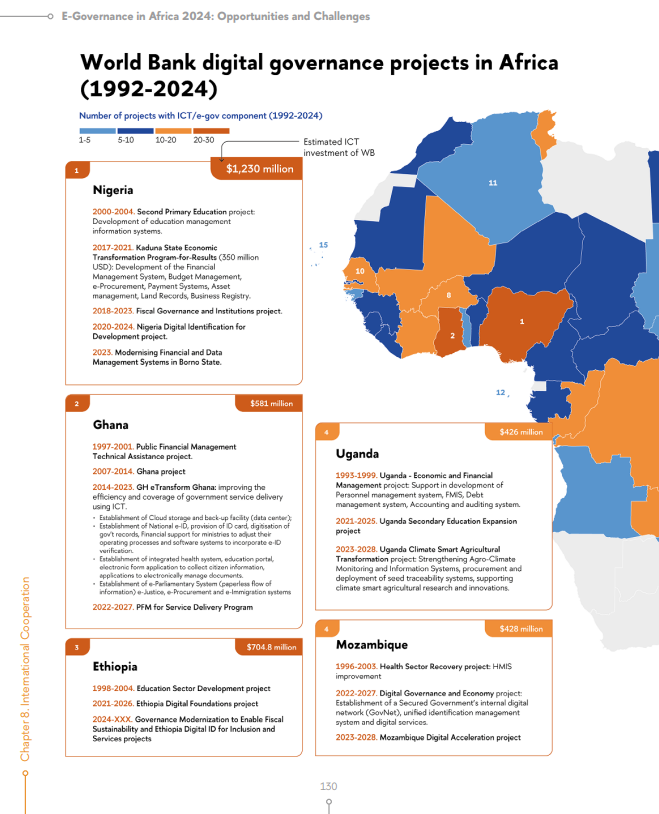On December 21, during the Winter Knowledge Sharing Week, the HSE Center for African Studies presented the handbook E-Governance in Africa 2024: Opportunities and Challenges which examines the actual state and process of digitising public administration in African countries. The handbook also explains the capabilities of African states that contribute to unlocking their potential in the field of electronic development as well as discusses relevant solutions for the continent.
The main purpose of the Winter Knowledge Sharing Week, an event during which the book was presented, was to identify the areas for further collaboration between Russian and African colleagues based on their experience in the field of e-governance.

Over the past decades, the subject of e-governance in Africa has been studied by a number of scholars all over the world. We attempted to observe the transformation of e-government studies in chronology and identify the alterations between the books published in 2007 and 2015, and the recently produced “E-Governance in Africa 2024: Challenges and Opportunities”, and the practical importance of each of the handbooks for Africa.
e-Governance in Africa From Theory to Action: A Handbook on ICTs for Local Governance published in 2007 by the International Development Research Centre (IDRC) predominantly summarises the dimensions of e-governance in theory, giving extensive descriptions of good governance and the potential of ICT in governance. The book is rather theoretical and inapplicable, as it is based more on the concepts of e-governance than on the African landscape, experience and sector development.
In contrast, the 2015 Emerging Issues and Prospects in African E-Government contains overviews of e-government by subregion and presents country case studies, both on e-government implementation and use. The 2015 book combines both theory and practice, and puts the emphasis on e-government development, either in general or by sector. Consequently, it could be of use for an analysis of the current state of e-government on the continent. The handbook possesses highly elaborated data on a number of sectors and countries, however the scope of the publication is limited to a number of sectors and countries overviewed. For instance, the Northern Africa region is not covered in any respect.
E-Governance in Africa 2024: Challenges and Opportunities primarily analyses the African e-governance practices and local context, providing an in-depth overview of the current state of e-government in Africa, development trends and needs. The handbook reviews the progress and challenges, and proposes diverse solutions within a number of sectors, including regulations, infrastructure, and emerging technologies. It aims to approach digital development in Africa from the practical perspective and foster the knowledge sharing within the continent.
As time follows, the writers tend to neglect theoretical concepts and general information and put an emphasis on case studies and regional practice. The 2007 handbook reveals the case studies from 4 African countries (Senegal, Ghana, Uganda, South Africa), compared to 10 case studies from 6 African countries (South Africa, Mozambique, Namibia, Malawi, Tanzania, Kenya) in the book produced in 2015. The recent handbook not only possesses the case studies and practices from the majority of African countries, but also displays the timelines of e-Government development in 43 African countries in a visual form.
The role of the visual content has also transformed during the previous decades. While both 2007 and 2015 publications lack graphic visual representations of data such as maps and charts, “E-Governance in Africa 2024: Challenges and Opportunities” furnishes elaborated infographics which could be found in every chapter of the handbook. Graphical maps, charts and schemes are available on each of the subjects discussed.


As the 2023 handbook was presented during the Winter Knowledge Sharing Week, the delegates of African countries were able to share their impressions on the study during the presentation.
“We are really impressed with the way you are doing things. I really appreciate the university for how it is collaborating and adding value to the digitalisation agenda, and I want to appreciate the book because it is an eye-opener on where we are. It is also a way of challenging us because it shows the status. Therefore, if you are logging behind, this becomes the motivation for you to pull yourself up. It also shows all of us what we can borrow from each other, as African countries. We should not reinvent the wheel: if an African country has done something, we can learn and leapfrog,” highlighted Mary Nyangara Kerema, Deputy Director Deputy Director of the ICT Directorate for Digital Public Administration, State Department of ICT and Digital Economy of Kenya.
Senior African officials from the ministries and departments responsible for e-government development emphasised the novelty, uniqueness and modernity of the information presented, as well as its significant contribution to the promotion of knowledge-sharing within the African nations.
“The handbook is one of the testimonies that I’m going to deliver to my government to show what type of things you have been able to achieve in a very short time. The picture of development in Africa has been captured very well, and I’m very thankful for that. There are a few things I want to add up on how we can go further. This event is an eye-opener for me because what I have discovered is that Russia has been able to achieve digital independence. Throughout Africa, that’s what we are working hard to ensure. Working with you, I’m very sure that we are going to have a good template that will take us there,” concluded Nkundwe Moses Mwasaga, Director General of the Information and Communication Technologies Commission of Tanzania.
The delegates were pleased to receive the acknowledgements of their progress, and expressed their readiness towards collaborating both with each other and with Russia in order to reach new heights in e-government development.
Authors:
Anastasia Svetlova, research fellow
Daria Sukhova, research fellow
